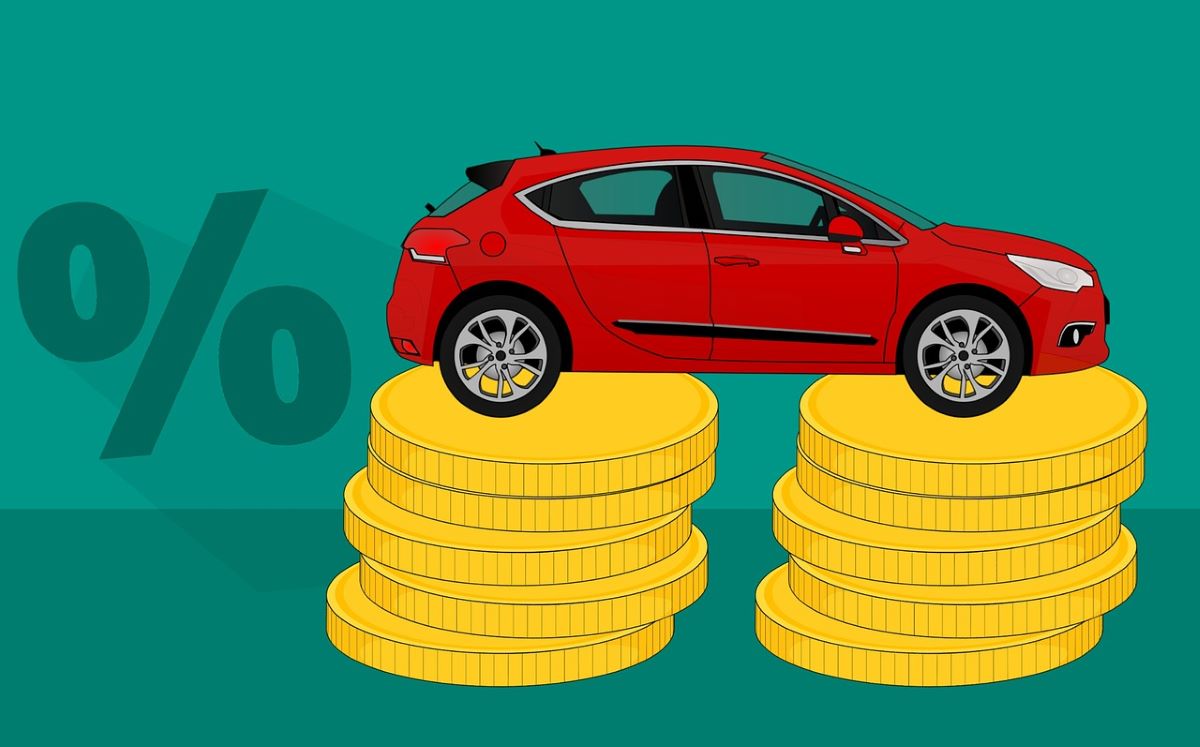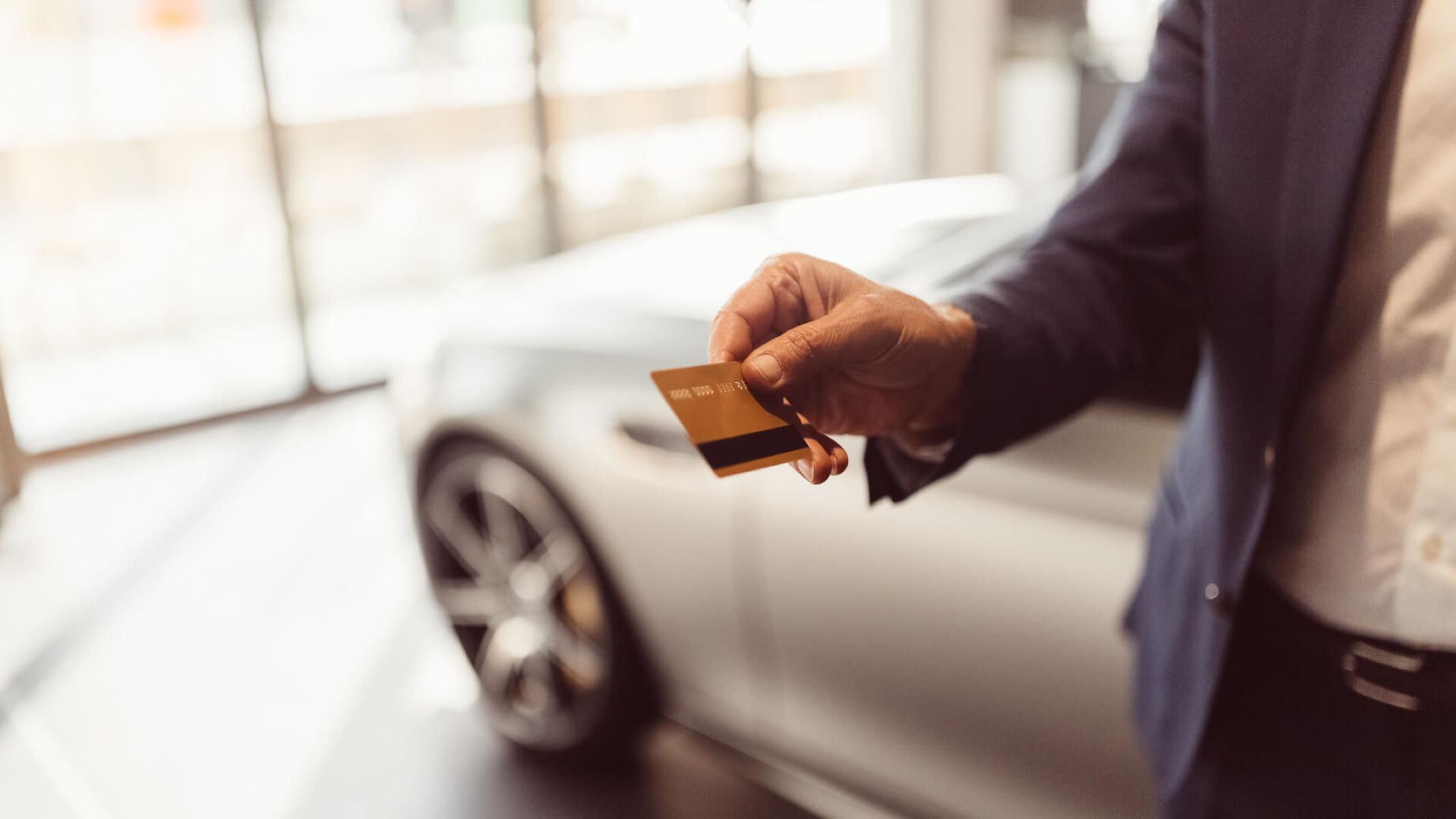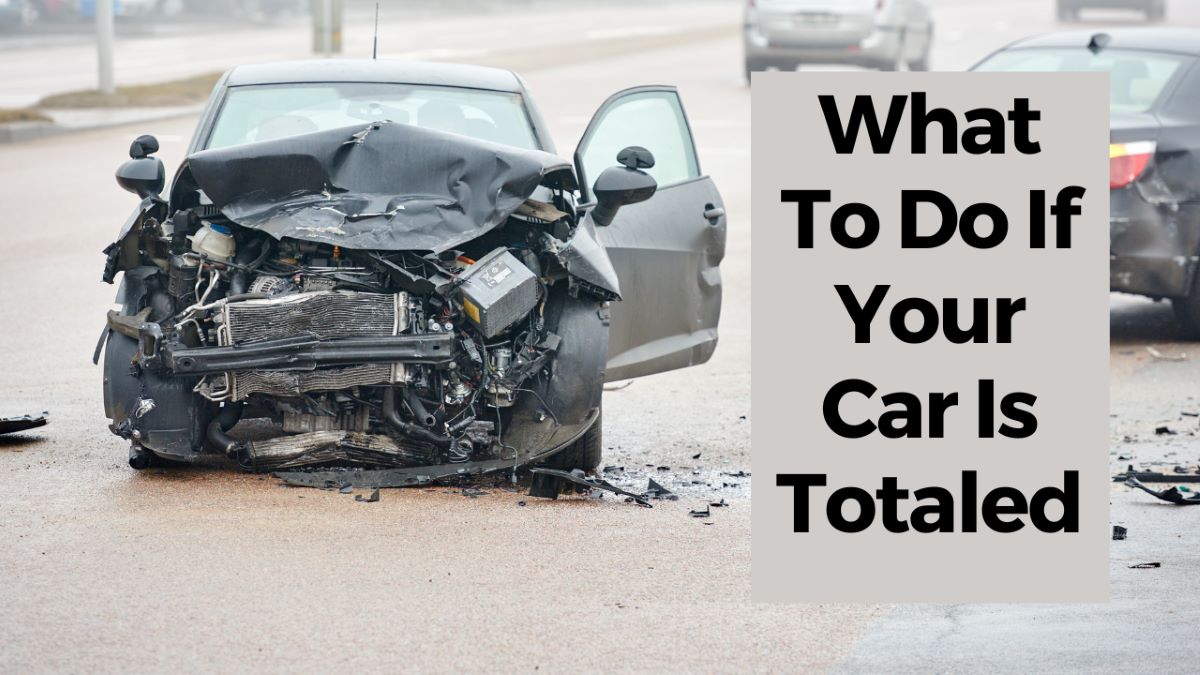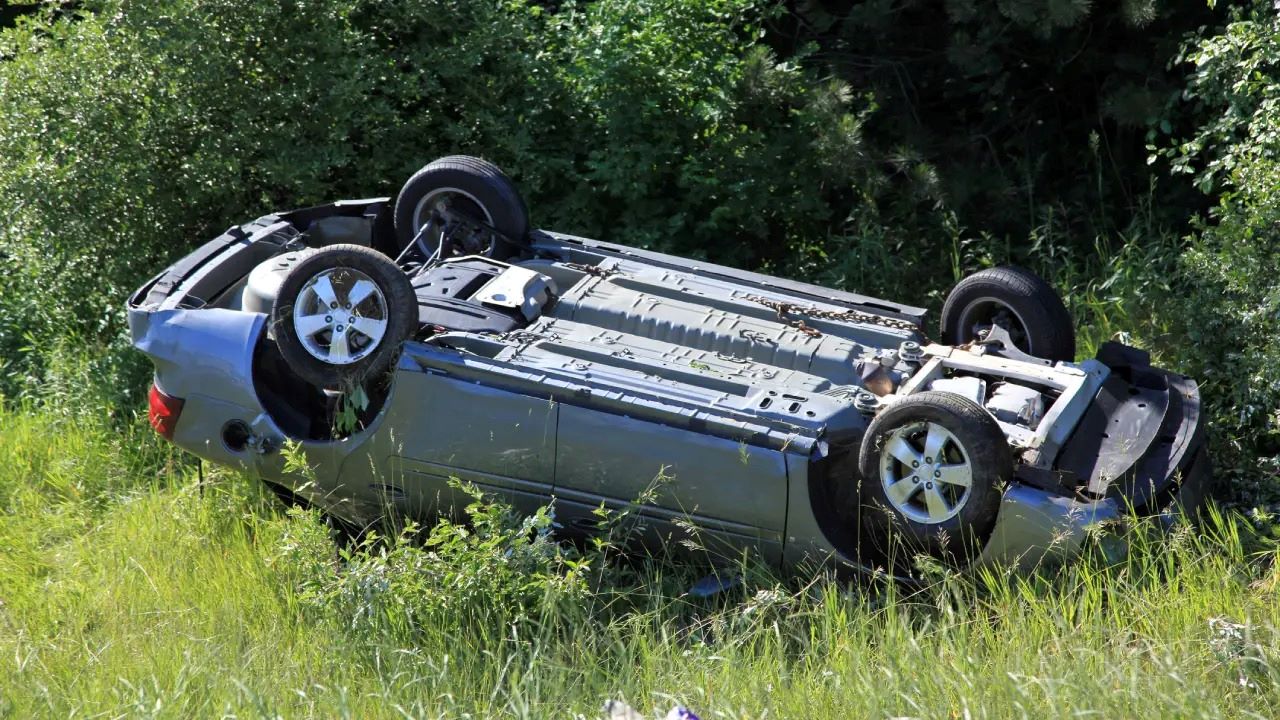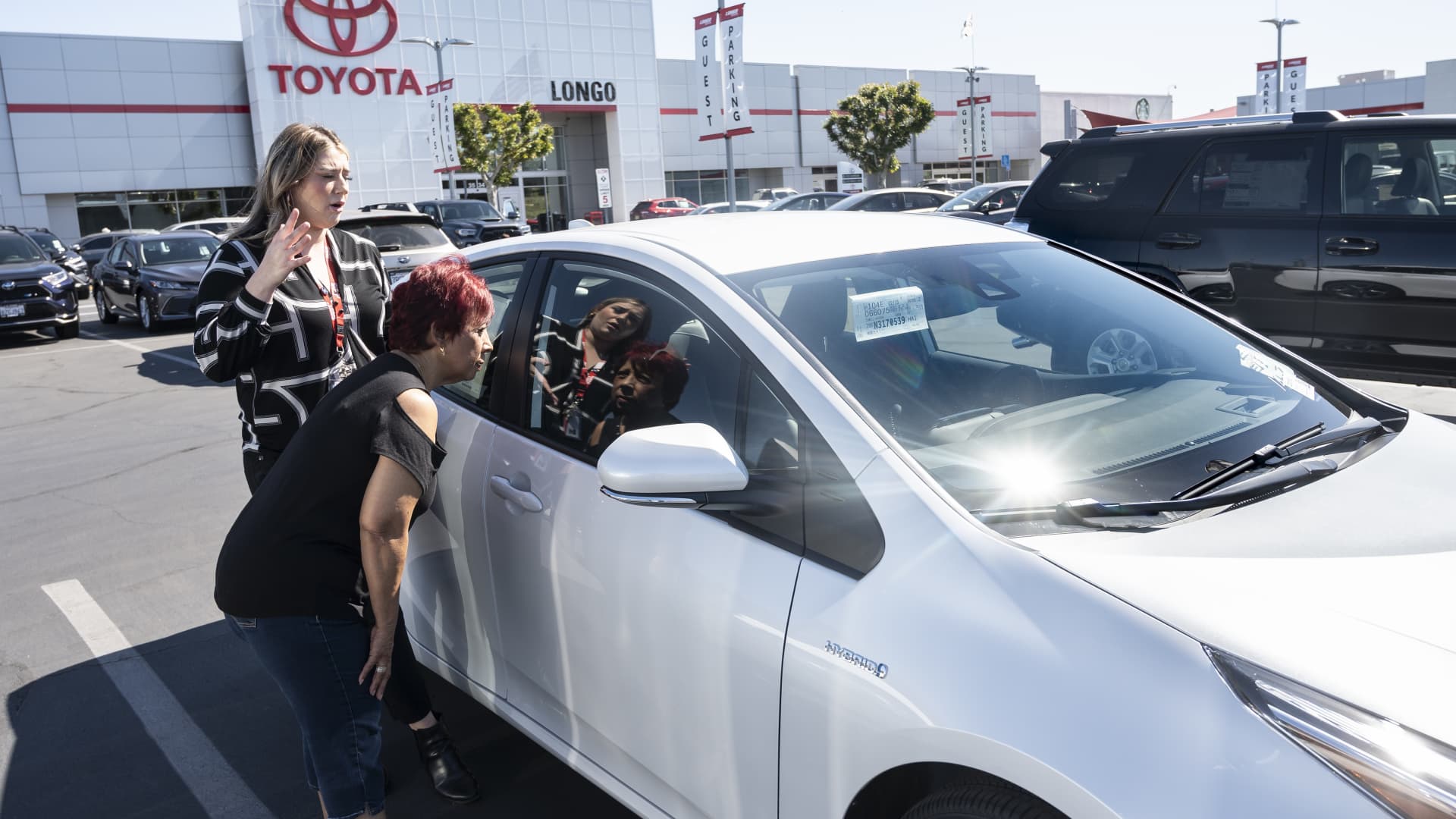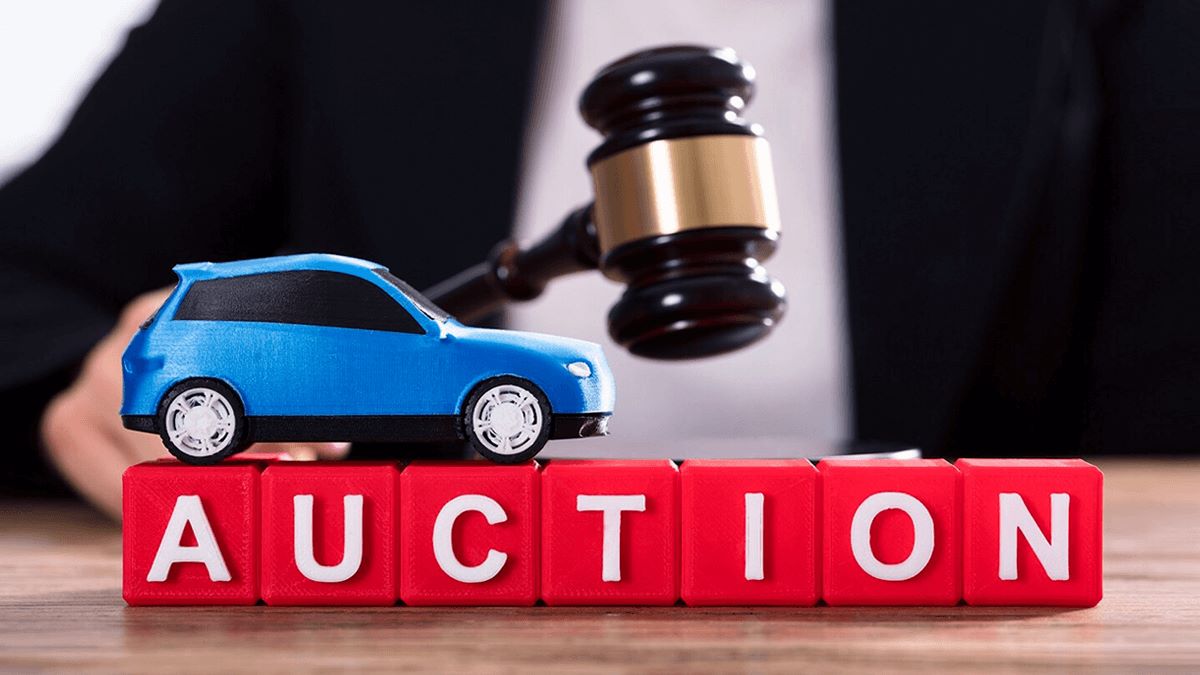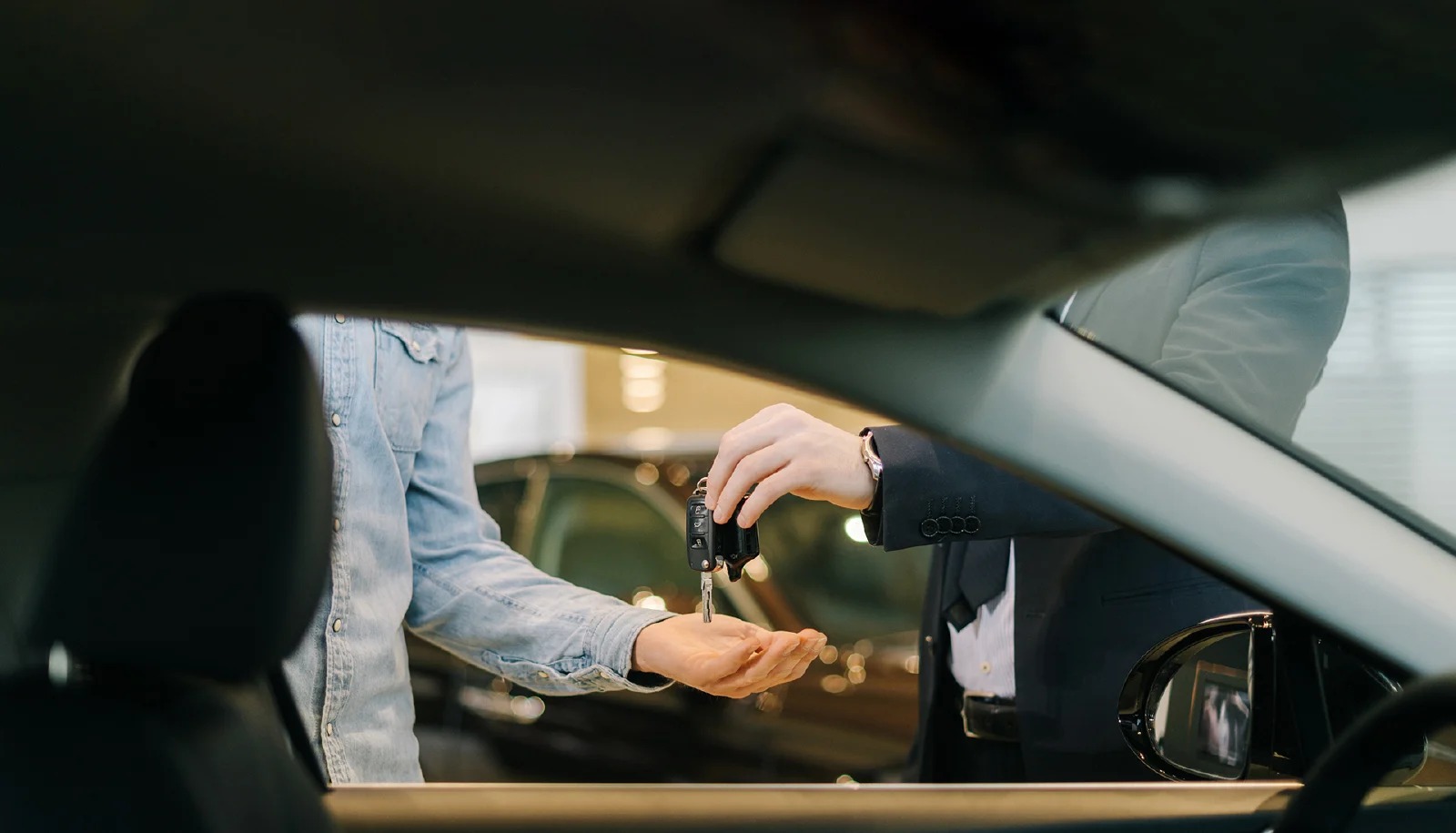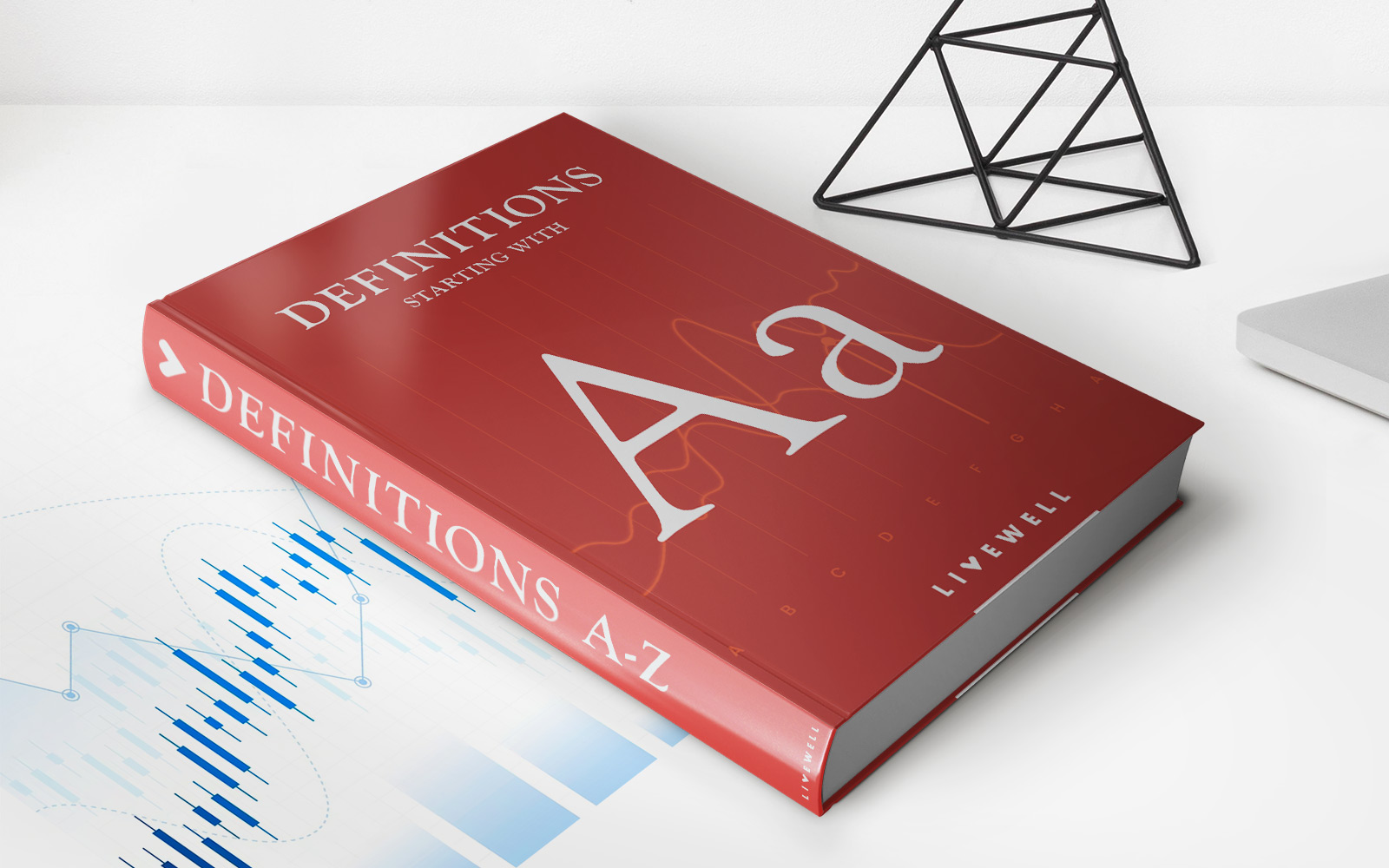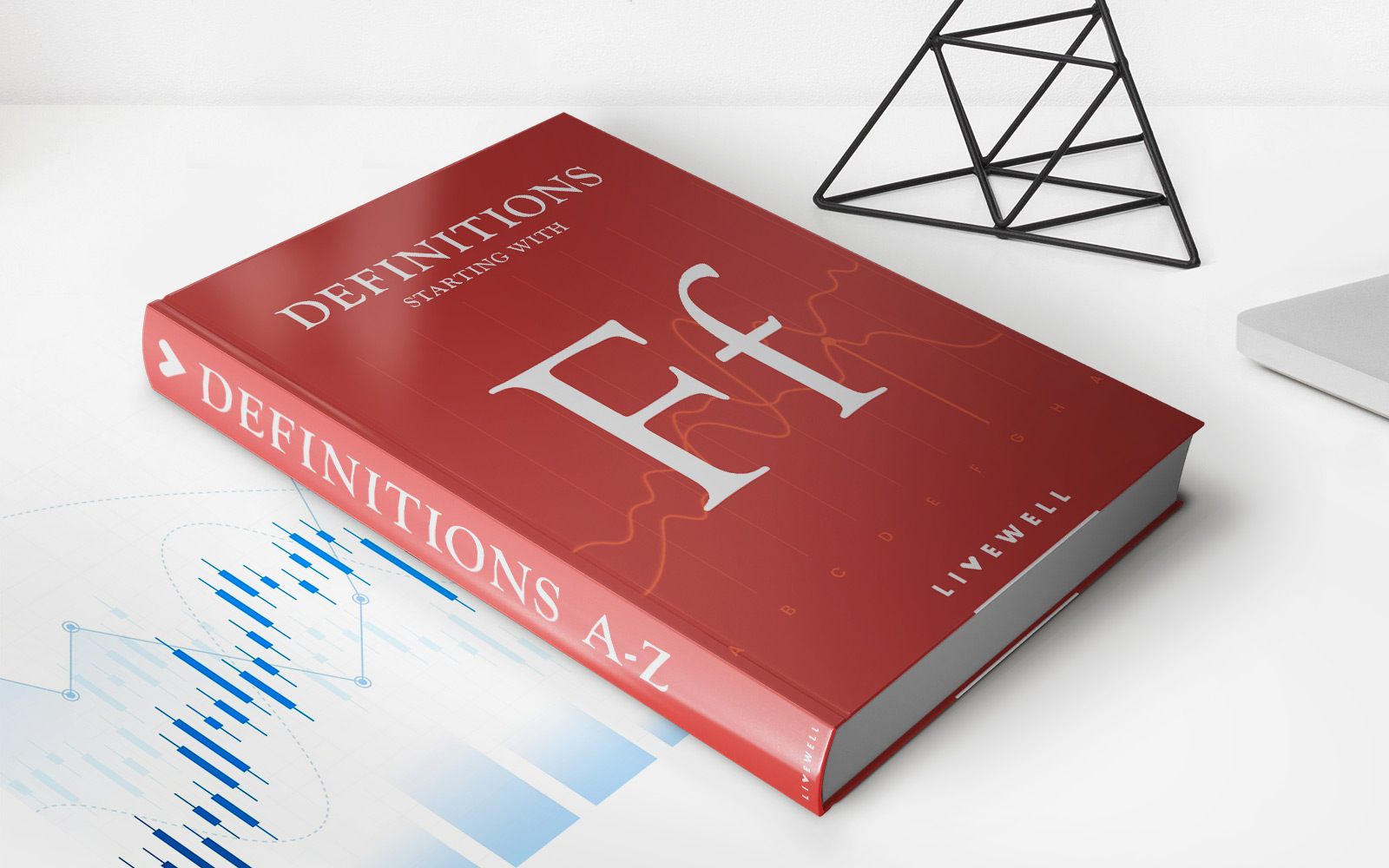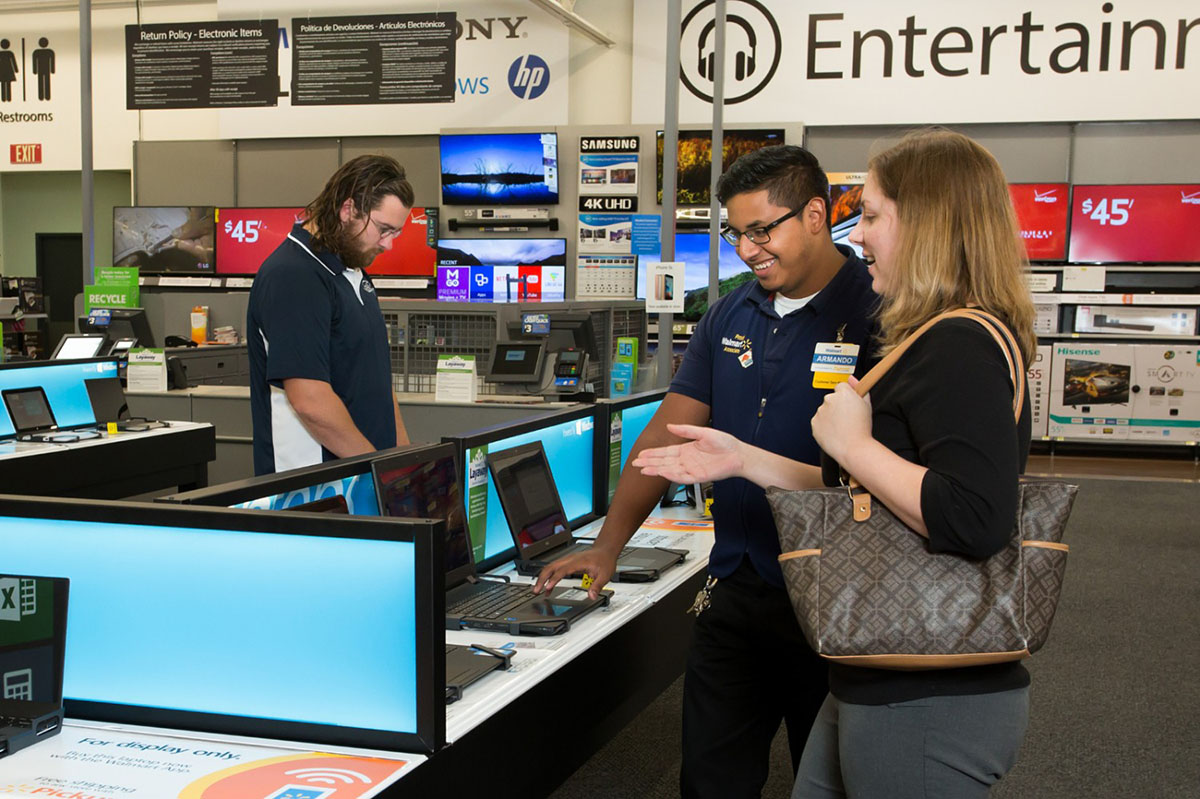Home>Finance>How To Buy Totaled Cars From Insurance Companies
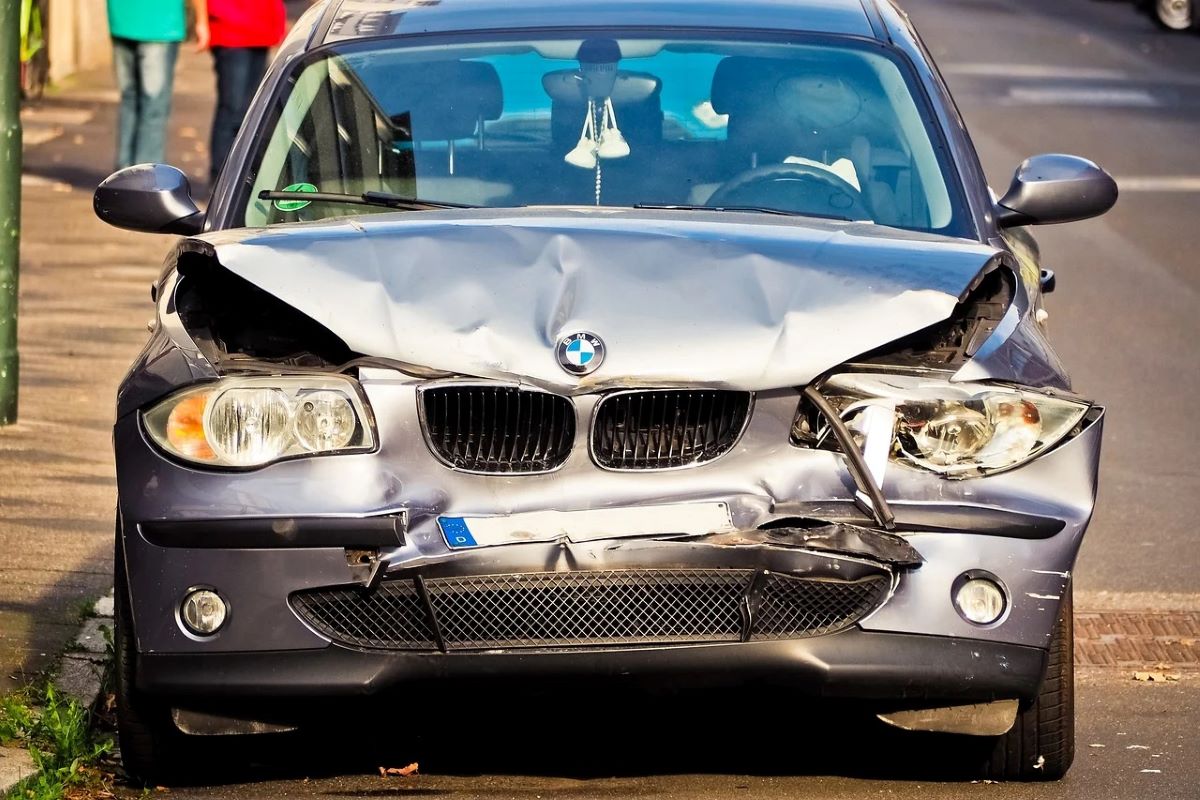

Finance
How To Buy Totaled Cars From Insurance Companies
Published: November 22, 2023
Looking to finance the purchase of totaled cars from insurance companies? Learn how to navigate the process and find great deals in this comprehensive guide.
(Many of the links in this article redirect to a specific reviewed product. Your purchase of these products through affiliate links helps to generate commission for LiveWell, at no extra cost. Learn more)
Table of Contents
- Introduction
- Understanding Totaled Cars
- Benefits of Buying Totaled Cars from Insurance Companies
- Factors to Consider Before Buying Totaled Cars
- Steps to Buy Totaled Cars from Insurance Companies
- Evaluating the Damage and Repair Costs
- Negotiating with the Insurance Company
- Submitting Necessary Documentation
- Finalizing the Purchase and Taking Possession of the Vehicle
- Tips for Repairing and Restoring Totaled Cars
- Risks and Drawbacks of Buying Totaled Cars
- Conclusion
Introduction
Buying a car can be an exciting and fulfilling experience, but what if you could get a great deal on a vehicle that has been deemed totaled by an insurance company? While the term “totaled” may sound discouraging, it doesn’t necessarily mean that the car is beyond repair or worthless. In fact, buying totaled cars from insurance companies can offer several benefits, including significant cost savings and the opportunity to restore a vehicle to its former glory.
Understanding what a “totaled” car actually means is the first step towards realizing the potential of these vehicles. When a car is involved in an accident, the insurance company assesses the damage and evaluates the cost of repairs. If the repair costs exceed a certain percentage of the car’s value, typically around 70-80%, the insurance company labels it as “totaled” or a “total loss.” This doesn’t mean that the car is completely destroyed, but rather that the repairs are deemed too expensive in relation to the car’s value.
Now that we have a basic understanding of what constitutes a totaled car, let’s explore the benefits of buying these cars from insurance companies. Firstly, buying a totaled car can save you a substantial amount of money compared to purchasing a similar vehicle in good condition. Insurance companies typically sell totaled cars at a significantly reduced price, reflecting the cost of the repairs required. This means that even after factoring in the repair costs, you can still acquire the vehicle for a fraction of its market value.
Secondly, buying a totaled car can give you the opportunity to restore and customize the vehicle to your liking. Many car enthusiasts enjoy the satisfaction of bringing a once-damaged car back to life and making it their own. This process allows you to not only save money on the initial purchase but also get a unique vehicle that matches your preferences. Whether you are looking for a project car or a chance to showcase your automotive skills, buying a totaled car can provide an exciting and rewarding endeavor.
That being said, there are several factors to consider before diving into the world of buying totaled cars from insurance companies. It’s essential to have a clear understanding of the extent of the damage and the estimated repair costs. Additionally, you’ll need to navigate the negotiation process with the insurance company and ensure that you have all the necessary documentation in place to complete the purchase. By following the proper steps and taking certain precautions, you can successfully buy a totaled car and turn it into a valuable asset.
Understanding Totaled Cars
When a car is involved in an accident or sustains significant damage, the insurance company assesses the cost of repairs compared to the value of the vehicle. If the repair costs exceed a certain threshold, typically around 70-80% of the car’s value, it is considered a “total loss” or “totaled” by the insurance company. However, it’s important to note that “totaled” does not mean the car is completely worthless or irreparable.
A totaled car simply means that the cost of repairing the vehicle is deemed too expensive, usually due to structural or extensive damage. This determination is made by insurance adjusters who evaluate the extent of the damage and calculate the estimated repair costs. They consider various factors, such as the age, make, model, and condition of the car, to determine if it is worth repairing or if the cost of repairs exceeds its market value.
It’s worth mentioning that the criteria for determining a totaled car may vary across insurance companies and jurisdictions. The percentage threshold for declaring a car totaled can differ, and certain states may have specific guidelines in place. It’s essential to understand the rules and regulations in your area to have a clear understanding of what constitutes a totaled car in your particular situation.
While a totaled car may have extensive damage, it doesn’t necessarily mean that it’s unsalvageable or unable to be repaired. In fact, many totaled cars can be restored to safe and roadworthy conditions with the right knowledge, skills, and resources. Some common types of damage that result in a car being declared totaled include severe frame damage, flood damage, fire damage, and airbag deployment.
It’s crucial to remember that purchasing a totaled car comes with its own set of considerations and risks. Before making a buying decision, it’s essential to carefully assess the extent of the damage and evaluate the potential repair costs. Consulting with a trusted mechanic or a professional body shop can provide valuable insights and help you determine if the car is worth the investment.
Understanding what a totaled car means and the potential for repair and restoration is integral to making an informed decision when considering buying these vehicles. While they may require some effort and investment, buying a totaled car can offer an opportunity to save money, customize a vehicle to your liking, and embark on an exciting restoration project.
Benefits of Buying Totaled Cars from Insurance Companies
Buying a totaled car from an insurance company can offer several benefits for savvy car buyers. While the idea of purchasing a damaged vehicle may initially seem daunting, it can actually be a wise financial decision with the potential for significant savings and other advantages. Here are some key benefits of buying totaled cars from insurance companies:
- Cost Savings: One of the primary advantages of buying a totaled car is the opportunity to save a substantial amount of money. Insurance companies typically sell these cars at deeply discounted prices, reflecting the cost of the required repairs. As a result, you can often purchase a coveted make or model at a fraction of its market value. Even after factoring in the repair costs, buying a totaled car can still be much more affordable compared to purchasing a similar car in good condition.
- Customization Potential: Buying a totaled car gives you the chance to customize the vehicle to your liking. Whether you’re a car enthusiast looking for a restoration project or simply want to personalize your ride, a totaled car provides a blank canvas. You have the freedom to choose the repairs, upgrades, and modifications that align with your preferences and style. This customization potential allows you to create a unique vehicle that stands out from the crowd.
- Availability of Rare Cars: Totaled cars are not limited to common models. In fact, you may find rare or hard-to-find vehicles through insurance company auctions. These cars may have been deemed totaled due to their value, scarcity of parts, or other factors. By purchasing a totaled car, you have a chance to own a unique and distinctive vehicle that may not be easily found in the traditional used car market.
- Vehicle Restoration: If you enjoy working on cars or have a passion for automotive restoration, buying a totaled car can provide a rewarding experience. Restoring a damaged vehicle to its former glory can be a fulfilling project that allows you to showcase your skills and creativity. You have the opportunity to breathe new life into a car and witness the transformation firsthand.
- Opportunity for Profit: While not guaranteed, buying a totaled car can sometimes offer the potential for a financial gain. If you have the knowledge and resources to repair the car at a reasonable cost and bring it back to a roadworthy condition, you may be able to sell it for a profit later on. This can be a lucrative endeavor for those with the skills and ability to navigate the market effectively.
It’s important to note that while buying a totaled car from an insurance company can be advantageous, it does come with its own set of considerations and risks. It’s crucial to thoroughly assess the extent of the damage, calculate the potential repair costs, and ensure you have the necessary resources and expertise to handle the restoration process. By approaching the purchase with careful research and diligence, you can unlock the benefits of buying a totaled car and make a financially smart decision.
Factors to Consider Before Buying Totaled Cars
While buying a totaled car from an insurance company can present an opportunity for cost savings and customization, it’s essential to carefully consider several factors before making a purchase. By taking these factors into account, you can make an informed decision and avoid potential pitfalls. Here are some key factors to consider before buying a totaled car:
- Extent of Damage: It’s crucial to thoroughly assess the extent of the damage to the car. This includes not only visible damage but also underlying structural issues that may not be immediately apparent. Determine if the damage is primarily cosmetic or if it affects the safety and functionality of the vehicle. Consulting with a trusted mechanic or a professional body shop can provide valuable insights and help you evaluate the feasibility of repairs.
- Repair Costs: Calculate the estimated repair costs for the totaled car. Obtain detailed quotes from reputable repair shops to have a clear understanding of the expenses involved. Be prepared for unforeseen costs that may arise during the restoration process. It’s important to ensure that the total investment, including the purchase price and repair costs, still results in a reasonable price for the car compared to its market value in good condition.
- Availability of Parts: Check the availability and cost of replacement parts for the specific make and model of the totaled car. Some cars may have rare or expensive parts, making the repair process more challenging and costly. Consider whether finding and acquiring the necessary parts will be feasible and within your budget. If parts are difficult to find or excessively expensive, it may significantly impact the overall cost-effectiveness of the project.
- Your Skills and Resources: Evaluate your own knowledge, skills, and resources when it comes to car repairs and restoration. Be honest about your abilities and consider whether you have the necessary expertise to tackle the required repairs or if you will need to hire professionals. Additionally, assess the tools and facilities available to you for the restoration process. If you are not equipped to handle the repairs, factor in the cost of hiring a qualified mechanic or body shop.
- Insurance and Title Issues: Check with your insurance provider to understand their policies regarding insuring a totaled car. Some insurance companies may have restrictions or require additional documentation for insuring a previously totaled vehicle. Additionally, ensure that the car’s title can be properly transferred and registered in your name without any legal complications or title branding that may affect its resale value in the future.
By carefully considering these factors, you can make an informed decision about purchasing a totaled car. Conducting thorough research, seeking professional advice, and accurately assessing the costs involved will help you determine if buying a totaled car is a viable option for you. Remember that transparency and due diligence are crucial to ensuring a successful purchase and restoration process.
Steps to Buy Totaled Cars from Insurance Companies
If you’ve decided to explore the option of buying a totaled car from an insurance company, there are several steps you should follow to ensure a smooth and successful purchase. Here is a step-by-step guide to buying totaled cars from insurance companies:
- Research and Identify Potential Cars: Start by researching insurance company auctions or salvage yards in your area. These are the primary sources for buying totaled cars. Look for reputable companies that have a good track record and offer a wide selection of vehicles. Identify the cars that pique your interest and meet your criteria in terms of make, model, and price range.
- Inspect the Vehicles: Visit the salvage yard or auction site to inspect the cars in person. Thoroughly examine the vehicles for any visible damage and assess the overall condition. Take note of any major flaws or potential issues that may affect the repair process or the value of the car. If you’re not confident in your ability to assess the car’s condition, consider bringing along a trusted mechanic or a knowledgeable friend to help you with the inspection.
- Evaluate Repair Costs: Calculate the estimated repair costs for the cars you’re interested in. Obtain quotes from trusted repair shops or mechanics to get a clear understanding of the expenses involved. Consider both the parts and labor costs. This evaluation will help you determine if the investment required to restore the car is within your budget and if it provides a worthwhile return on investment.
- Research the Vehicle History: Obtain the vehicle identification number (VIN) for each car you’re considering and run a comprehensive vehicle history report. This report will provide valuable information about the car’s accident history, previous damage, and any issues that may have arisen in the past. Understanding the vehicle’s history allows you to make an informed decision and identify any potential red flags.
- Participate in Auctions or Negotiate Prices: If you’re buying from an auction, familiarize yourself with the auction process and bidding rules. Set a maximum budget for each car you’re interested in and stick to it. If you’re negotiating directly with the insurance company, be prepared to negotiate the price based on the estimated repair costs and the car’s condition. Remember to be patient and flexible throughout the negotiation process.
- Submit the Necessary Documentation: Once you’ve agreed on a price, you’ll need to provide the necessary documentation to finalize the purchase. This typically includes proof of identity, proof of insurance, and the necessary payment. The insurance company or salvage yard will guide you through the specific documentation requirements.
- Arrange for Transportation: After completing the purchase, you’ll need to arrange for transportation of the vehicle to your desired location. Depending on the size and condition of the car, you may need to hire a towing service or arrange for a flatbed truck to transport it safely. Factor in the transportation costs when budgeting for the overall purchase.
- Perform a Detailed Inspection: Once you have the car in your possession, perform an in-depth inspection to confirm the extent of the damage and identify any additional issues that may have been missed during the initial assessment. This will help you create a comprehensive repair plan and avoid any surprises or unseen problems later on.
- Begin the Restoration Process: With a clear understanding of the car’s condition and the required repairs, you can begin the restoration process. This may involve sourcing and acquiring the necessary parts, hiring professionals for specific tasks, or taking on the repairs yourself if you have the skills and resources. Follow a structured plan to ensure that the restoration proceeds smoothly and efficiently.
Buying a totaled car from an insurance company requires careful consideration, research, and thoroughness. It’s important to be patient and meticulous throughout the process to ensure you make the right decision and set yourself up for a successful restoration project. With proper planning and execution, buying a totaled car can be a rewarding and cost-effective way to acquire your dream vehicle.
Evaluating the Damage and Repair Costs
Before purchasing a totaled car from an insurance company, it’s crucial to evaluate the extent of the damage and estimate the repair costs. This evaluation is essential to determine if the investment required for repairs is feasible and aligns with your budget. Here are some important factors to consider when evaluating the damage and repair costs of a totaled car:
- Visual Inspection: Begin by conducting a thorough visual inspection of the vehicle. Carefully examine the exterior and interior for any visible damage. Look for signs of collision damage, frame or structural issues, water damage, or other forms of damage that may affect the car’s safety, functionality, or aesthetics.
- Expert Assessment: While a visual inspection can provide some insight, it’s recommended to have an expert assess the damage. Consult a trusted mechanic or a professional body shop specializing in vehicle repairs. They have the experience and knowledge to identify hidden damage and assess the overall condition of the car. Their assessment can help you estimate the extent of the repairs needed and the associated costs.
- Repair Estimates: Obtain detailed repair estimates from multiple reputable repair shops. Provide them with as much information as possible about the car’s condition and the damage you have identified. This will help you compare the repair costs and identify any significant discrepancies between different shops. Having multiple estimates gives you a better understanding of the average repair costs and allows you to make an informed decision.
- Parts Availability and Cost: Research the availability and cost of replacement parts for the specific make and model of the totaled car. Some cars may have expensive or hard-to-find parts, which can significantly impact the overall repair costs. Consider factors such as the availability of aftermarket parts, salvage parts, or the need for original manufacturer parts. Keep in mind that the availability and cost of parts can vary depending on the car’s popularity and age.
- Hazardous Materials and Additional Costs: Take into account any potential hazardous materials that may require special handling or disposal, such as airbags, fluids, or electrical components. These materials can add to the overall repair costs and should be factored into your estimation. Additionally, consider other potential costs, such as painting, reupholstering, or repairing specialized features or systems in the car.
- Contingency Budget: It’s advisable to set aside a contingency budget when evaluating repair costs for a totaled car. This additional amount acts as a buffer to account for unforeseen expenses that may arise during the repair process. The contingency budget helps ensure that you have enough financial flexibility to address unexpected challenges without derailing the restoration project.
By thoroughly evaluating the damage and estimating the repair costs, you can make an informed decision about whether the investment required to restore the totaled car aligns with your budget and expectations. Remember to consider all aspects of the repair process and seek professional guidance when necessary. With careful evaluation, you can assess the feasibility of repairing the car and make a well-informed decision regarding its purchase.
Negotiating with the Insurance Company
When buying a totaled car from an insurance company, negotiation plays a crucial role in securing the best deal possible. It’s important to approach the negotiation process with diligence and strategy to ensure that you get a fair price for the vehicle. Here are some key steps and considerations to keep in mind when negotiating with the insurance company:
- Research and Gather Information: Before entering into negotiations, gather as much information as possible about the car, its condition, and its market value. Research the fair market value of similar vehicles in good condition, as well as the average repair costs for the specific make and model. This information will provide you with a solid foundation for negotiation and help you make a compelling case.
- Know Your Budget: Determine your maximum budget for the purchase, factoring in the estimated repair costs. This figure will serve as your negotiating limit and prevent you from overextending financially. Be firm in your budget and avoid exceeding it, even if the insurance company tries to push for a higher price.
- Highlight the Extent of Damage: During negotiation, emphasize the extent of the damage and the repair costs involved. Provide evidence and documentation, such as repair estimates, to support your claims. By highlighting the substantial repairs needed, you can present a strong case for a lower purchase price.
- Emphasize Your Ability to Restore the Car: If you have the skills, resources, and experience to perform the repairs yourself, make sure the insurance company is aware of this. Highlight your track record or expertise in restoring vehicles or demonstrate your access to professional help at a lower cost. By demonstrating your ability to restore the car at a reasonable expense, you may be able to negotiate a lower purchase price.
- Negotiate Based on Market Value: Utilize information about the fair market value of similar vehicles to negotiate a price that is in line with the car’s condition. If the insurance company is asking for a price that seems too high, present evidence to support a lower valuation. Explain why the price should reflect the fact that it is a totaled car and that it will require significant repairs.
- Consider the Insurance Company’s Perspective: Understand that the insurance company’s primary goal is to recoup as much of their losses as possible. They may have their own internal guidelines and pricing strategy. Keeping this in mind, remain polite, patient, and respectful throughout the negotiation process. Building a positive rapport can go a long way in reaching a mutually beneficial agreement.
- Be Prepared to Walk Away: If negotiations reach a stalemate or the insurance company refuses to budge on the price, be prepared to walk away from the deal. Sometimes, indicating your willingness to seek alternatives or look for a different totaled car can encourage the insurance company to reconsider their position. Remember that there are other options available, and it’s better to find a deal that aligns with your budget and requirements.
Negotiating with the insurance company requires a combination of research, assertiveness, and flexibility. By being well-prepared, presenting a compelling case, and maintaining a respectful but firm approach, you can increase your chances of securing a favorable purchase price for the totaled car. Remember, effective negotiation can result in significant savings and increase the overall value of your investment.
Submitting Necessary Documentation
Once you have successfully negotiated the purchase price for the totaled car with the insurance company, you will need to submit certain documentation to finalize the transaction. These documents are typically required to transfer ownership and complete the purchase. Here are the necessary documents you’ll likely need to provide:
- Proof of Identity: You will need to provide a valid form of identification, such as a driver’s license or passport, to verify your identity. This confirms that you are the rightful buyer and that the car will be registered in your name.
- Proof of Insurance: In most cases, insurance companies require proof of insurance before selling a totaled car. This is to ensure that the vehicle will be properly insured once it is in your possession. Contact your insurance provider to arrange coverage and obtain the necessary proof of insurance documentation.
- Sales Agreement or Bill of Sale: A sales agreement or bill of sale is a legal document that outlines the terms and conditions of the purchase. It includes information such as the buyer’s and seller’s details, vehicle information, purchase price, and any warranties or conditions. This document is important for both parties and serves as proof of the transaction.
- Vehicle Title: The insurance company should provide you with the necessary paperwork to complete the transfer of the vehicle title. This typically includes the original vehicle title, which will be reassigned to you as the new owner. Additionally, you may need to fill out a transfer of ownership form or other related documents as required by your local Department of Motor Vehicles or equivalent authority.
- Vehicle History Report: While not always mandatory, providing a vehicle history report can be beneficial and instill confidence in the purchase. It helps demonstrate transparency and provides valuable information about the car’s past accidents, damage, and ownership history. This report can be obtained from reputable providers online.
- Payment: Depending on the insurance company’s policy, you may need to provide payment in full or a deposit to secure the purchase. This can typically be done with a cashier’s check, money order, or electronic bank transfer. Ensure that you have the necessary funds available and are prepared to make the payment as required.
It’s important to consult with the insurance company or salvage yard to confirm the specific documentation requirements for purchasing the totaled car. They will provide guidance on the necessary paperwork and any additional requirements that may apply in your jurisdiction. Failure to provide the correct documentation can delay the process or even result in the transaction being invalid, so it’s crucial to ensure that you have everything in order before completing the purchase.
Double-checking that all the required documents are accurate, signed, and properly submitted will not only facilitate a smooth transaction but also protect you as the buyer and ensure that you have legal ownership of the vehicle. Following the necessary documentation process diligently will help finalize the purchase and allow you to take possession of the totaled car.
Finalizing the Purchase and Taking Possession of the Vehicle
After submitting the necessary documentation and completing the negotiation process, it’s time to finalize the purchase and take possession of the totaled car. This stage involves a few key steps to ensure a smooth transition of ownership. Here’s what you need to do to finalize the purchase and take possession of the vehicle:
- Arrange Payment: Ensure that you have made the necessary payment as agreed upon with the insurance company. Whether it’s a full payment or a deposit, make sure you have the funds ready in the appropriate form, such as a cashier’s check or electronic transfer. Comply with the payment method and timing specified by the insurance company to ensure a successful transaction.
- Confirm Transfer of Ownership: Work with the insurance company or salvage yard to officially transfer the ownership of the vehicle to your name. This process typically involves signing the necessary paperwork, updating the title with your details, and completing any additional forms required by the local Department of Motor Vehicles or equivalent registration authority. Ensure that you follow the proper procedures for transferring ownership to avoid any future legal complications.
- Obtain Required Stickers and Plates: Check with your local registration authority to determine if you need to obtain new license plates or stickers for the totaled car. Depending on local regulations, you may need to obtain new plates or request a new registration sticker to indicate the change in ownership. Follow the guidelines provided by the authorities to ensure compliance and avoid any legal issues.
- Arrange for Transportation: Coordinate the transportation of the vehicle to your desired location. This may involve hiring a towing service if the car is not drivable or arranging for a flatbed truck to transport it safely. Ensure that you have made the necessary arrangements in advance to avoid any delays or complications.
- Perform a Final Inspection: Before taking possession of the vehicle, perform a final inspection to confirm its condition. Ensure that it matches the details discussed during negotiations and that no additional damage has occurred during the interim period. Take note of any discrepancies and address them with the insurance company before completing the purchase.
- Transfer Insurance Coverage: Contact your insurance provider to transfer the necessary coverage to the newly acquired car. Provide them with the updated details, such as the VIN and registration information, to ensure proper coverage. Keep in mind that insuring a previously totaled car may require additional documentation or considerations, so communicate openly with your insurance provider to streamline the process.
- Begin the Restoration Process: With the necessary paperwork completed and ownership transferred, you can now begin the restoration process if you plan to repair and restore the totaled car. Follow your predetermined repair plan, source the required parts and services, and start the journey of bringing the vehicle back to its former glory. Remember to maintain a realistic timeline and budget as you navigate through the restoration project.
By following these steps, you can finalize the purchase of the totaled car and take possession of the vehicle. Keep in mind that each step may have specific requirements or procedures that vary depending on your location and the insurance company’s policies. It’s important to stay organized, maintain clear communication with the insurance company, and adhere to the necessary legal processes to ensure a seamless and successful transaction.
Remember, the process of buying a totaled car requires patience, careful consideration, and a well-rounded approach. With proper planning and attention to detail, you can navigate the finalization process smoothly and embark on your journey of restoring and reviving the once-totaled vehicle.
Tips for Repairing and Restoring Totaled Cars
Repairing and restoring a totaled car can be an exciting and rewarding project, but it requires careful planning, knowledge, and attention to detail. To help you through the restoration process, here are some valuable tips to consider:
- Create a Detailed Repair Plan: Before starting any repairs, develop a comprehensive repair plan. Assess the extent of the damage, identify the necessary repairs, and prioritize tasks. Breaking down the restoration process into manageable steps will help you stay organized and focused throughout the project.
- Set a Realistic Budget: Determine your budget for repairs and allocate funds accordingly. Consider not only the cost of parts but also the expenses for any necessary tools, equipment, or professional services. Keep in mind that unexpected expenses can arise, so it’s wise to set aside a contingency fund to account for any unforeseen costs.
- Source Quality Parts: Choose high-quality replacement parts for your car. Depending on your budget and preferences, you can opt for original equipment manufacturer (OEM) parts or aftermarket alternatives. Research reputable suppliers and read reviews to ensure that the parts you purchase are reliable and compatible with your vehicle.
- Document the Process: Keep a record of all repairs and modifications performed on the car. Take photos before, during, and after each stage of the restoration process. This documentation will not only serve as a reference but can also be useful if you decide to sell the car in the future, as it showcases the meticulous care and attention given to the vehicle.
- Seek Professional Help When Needed: While doing DIY repairs can save money, be realistic about your skills and limitations. Consider hiring professionals for complex or specialized tasks such as painting, bodywork, or electrical repairs. Their expertise can ensure that the repairs are done correctly, saving you time and potential costly mistakes.
- Follow Safety Procedures: Always prioritize safety when working on a totaled car. Use protective gear, such as gloves, goggles, and masks when necessary. Take precautions when working with hazardous materials, sharp tools, or heavy machinery. If you’re unsure about a particular repair or procedure, consult with professionals or seek guidance from experienced enthusiasts.
- Focus on Structural Integrity: Pay special attention to restoring the car’s structural integrity. Ensuring that the frame or chassis is properly aligned and repaired is essential for the car’s safety and performance. If needed, consult with an expert to assess and address any structural damage.
- Keep it Authentic or Customize to Your Preferences: Decide whether you want to restore the car to its original condition or if you prefer to customize it to your preferences. If you’re aiming for authenticity, strive to source original parts and follow the manufacturer’s specifications. If customization is your goal, unleash your creativity and make the car truly unique. Strike a balance between maintaining the car’s original charm and expressing your personal style.
- Don’t Rush the Process: Take your time during the restoration process. Rushing could lead to mistakes and compromised results. Enjoy the journey and appreciate the craftsmanship involved in bringing the car back to life. By investing time and effort in each step, you’ll achieve a more satisfying and successful restoration.
- Enjoy the Result: Once the repairs and restoration are complete, take a moment to admire and appreciate your hard work. Enjoy the satisfaction of reviving a once-totaled car and being able to drive it again. Share your accomplishment with fellow enthusiasts or participate in car shows to showcase your restored gem.
Remember that each car and restoration project is unique, and these tips serve as general guidelines. Adapt them to your specific circumstances and consult with professionals or experienced restorers for additional advice. With patience, attention to detail, and a passion for car restoration, you can bring a totaled car back to life and enjoy the pride of owning a beautifully restored vehicle.
Risks and Drawbacks of Buying Totaled Cars
While buying totaled cars from insurance companies can offer several advantages, it’s important to be aware of the risks and drawbacks associated with these purchases. Understanding and mitigating these factors will help you make an informed decision. Here are some key risks and drawbacks to consider:
- Uncertain Condition: Buying a totaled car means accepting a vehicle with prior damage, and there is always the possibility of hidden or unforeseen issues. Despite careful inspections, there may be underlying damage or lingering problems that are difficult to detect initially. This uncertainty in the condition of the car can lead to unexpected repair costs or potential safety concerns.
- Higher Insurance Premiums: Insuring a totaled car can be more challenging and expensive compared to insuring a vehicle with no prior damage. Some insurance companies may charge higher premiums or have stricter requirements for insuring previously totaled cars. Before making a purchase, it’s essential to check with your insurance provider to understand their policies and any potential financial implications.
- Limited Financing Options: Financing a totaled car can be more challenging than financing a traditional used car. Many lenders are hesitant to provide loans for vehicles with prior damage, especially if extensive repairs are required. This limited financing availability may require you to secure alternative financing options or pay for the car in cash.
- Potential Hidden Damage: Despite thorough inspections, there is always the risk of hidden or underlying damage that may become apparent later. Some damage may not be immediately visible or may require dismantling or specialty repairs to be uncovered. Uncovering hidden damage can significantly impact repair costs and your overall investment in the vehicle.
- Reduced Resale Value: Totaled cars often have a diminished resale value compared to vehicles with no prior damage. Potential buyers may be wary of purchasing a previously totaled car, even if it has been repaired and restored. This reduced resale value can limit your options if you decide to sell the car in the future.
- Complexity of Repair Work: Restoring a totaled car can be a complex and time-consuming process, especially if extensive repairs are required. It may involve specialized knowledge, tools, and expertise. If you don’t have the necessary skills or resources, you may need to hire professionals, further increasing the cost of repairs. Additionally, the time and effort required for the restoration process should be considered, as it may delay your ability to use the car.
- Voided or Limited Warranties: Purchasing a totaled car may void or limit any remaining warranties on the vehicle, such as manufacturer or extended warranties. It’s crucial to clarify and understand the warranty implications before finalizing the purchase. Losing warranty coverage can increase the potential financial risk if unexpected issues arise after the purchase.
- Emotional Investment: Restoring a totaled car requires a significant emotional and personal investment. It demands patience, skill, and dedication to see the restoration project through to completion. If you’re not fully committed or passionate about the process, the project may become overwhelming or lose its appeal over time.
Being aware of the risks and drawbacks associated with buying totaled cars allows you to approach the decision with caution and make an informed choice. Thorough inspections, proper documentation, and realistic budgeting can help mitigate some of these risks. Ultimately, it’s important to carefully balance the potential benefits with the potential challenges and only proceed if you feel confident in your ability to handle the restoration process.
Conclusion
Buying a totaled car from an insurance company can be a viable option for car enthusiasts, DIYers, and those seeking cost savings. By understanding what a totaled car entails, assessing the benefits and drawbacks, and following the necessary steps, you can make an informed decision and set yourself up for a successful purchase and restoration project.
The potential benefits of buying a totaled car, such as significant cost savings, customization opportunities, and the satisfaction of bringing a damaged vehicle back to life, make the endeavor appealing. In addition, sourcing rare or unique vehicles and the potential for profits further enhance the appeal of buying totaled cars.
However, it’s important to acknowledge the risks and challenges involved. Assessing the extent of the damage, estimating repair costs, negotiating with the insurance company, and handling the necessary documentation are critical steps to navigate successfully. Furthermore, understanding the potential drawbacks, including uncertain condition, limited financing options, and reduced resale value, ensures that you approach the process with realistic expectations.
Restoring a totaled car requires careful planning, budgeting, and a realistic assessment of your skills and resources. It’s essential to prioritize safety, authenticity, and thoroughness throughout the restoration process. By adhering to best practices, seeking professional help when needed, and maintaining meticulous documentation, you can ensure a satisfactory result.
In conclusion, buying a totaled car from an insurance company can be a rewarding and cost-effective way to own a unique vehicle. However, it’s crucial to approach the process with caution, do thorough research, and carefully consider the risks and benefits. By doing so, you can embark on an exciting restoration journey, turn a once-damaged car into a prized possession, and enjoy the satisfaction of breathing new life into a vehicle that was once deemed beyond repair.
